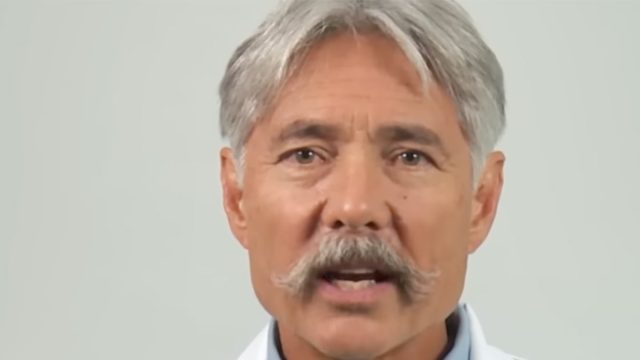10 Ways to Lose Weight Fast, According to Top Doctor
Is losing weight fast unhealthy? Not according to endocrinologist Ken Fujioka, MD, who says speedy weight loss is nothing to worry about. "We used to think it was bad and it turns out it doesn't matter—just lose the weight," he says. Shedding even a few pounds is beneficial for health, experts say. "Even losing a modest amount – just 5-10 percent of your total body weight – can result in almost immediate health benefits and reduce your risk for a wide variety of health conditions and diseases," says University Hospitals. "In fact, almost every aspect of your health improves when you lose weight." Here are Dr. Fujioka's top tips for losing weight fast, and keeping it off.
Restrict Calories
Dr. Fujioka's first tip for speedy weight loss is to restrict calories. Weight loss comes down to burning off more calories than you're taking in. "No matter what type of diet you follow, to lose weight you need to burn more calories than you take in each day," says MedLine Plus. "For most people who are overweight, cutting about 500 calories a day is a good place to start. If you can eat 500 fewer calories every day, you should lose about a pound (450 g) a week."
Exercise

Dr. Fujioka says exercise is beneficial if speedy weight loss is the goal. "Being active is vital to losing weight and keeping it off," says the Mayo Clinic. "When active, the body uses more energy in the form of calories. And burning more calories than you take in leads to weight loss."
intermittent Fasting
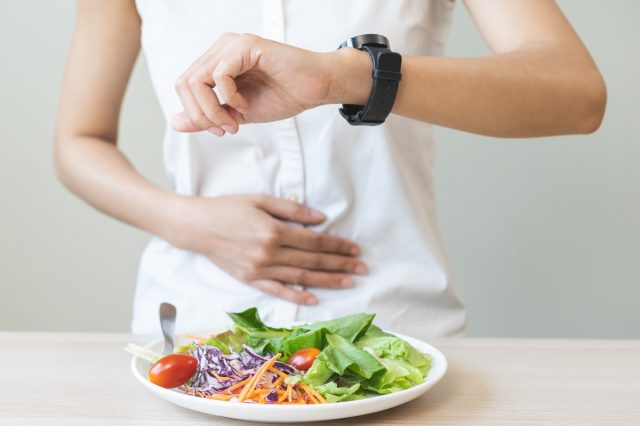
Dr. Fujioka recommends intermittent fasting—at least 16 hours a day of fasting, and allowing an eight hour window for eating. "When your body doesn't have the glucose it needs for energy, it taps into your body's fat for energy," according to Family Doctor. "When this happens, the fatty acids in your body are absorbed into your blood. They produce a chemical called ketones. Your body then uses the ketones as its energy source. This is called a metabolic switch. Your body is switching from glucose to ketones. When your body uses ketones instead of fat, you may lose weight. But, behind the scenes, the ketones also may be having a positive effect on your body's organs and cells."
Use Protein Shakes/Bars
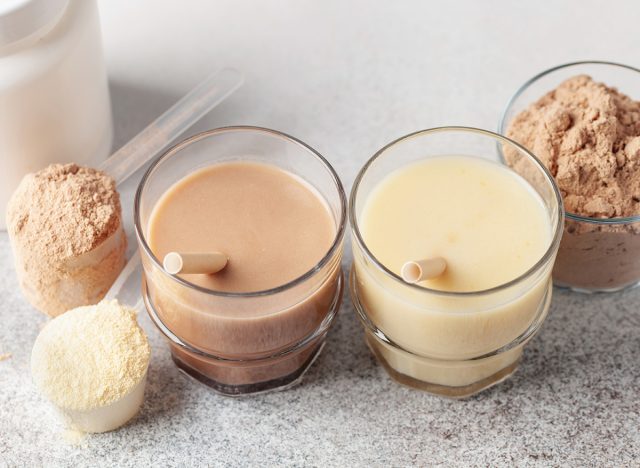
Dr. Fujioka recommends using protein bars and shakes for smaller meals, and eating one normal meal a day. "If you find yourself yo-yo dieting, or losing and then regaining weight, getting more protein into your diet may reduce the amount of weight you regain in the future," Frances Largeman-Roth, RDN tells TODAY. "So, it's fair to say that protein shakes may help with weight loss by increasing your protein shake."
Use a Scale
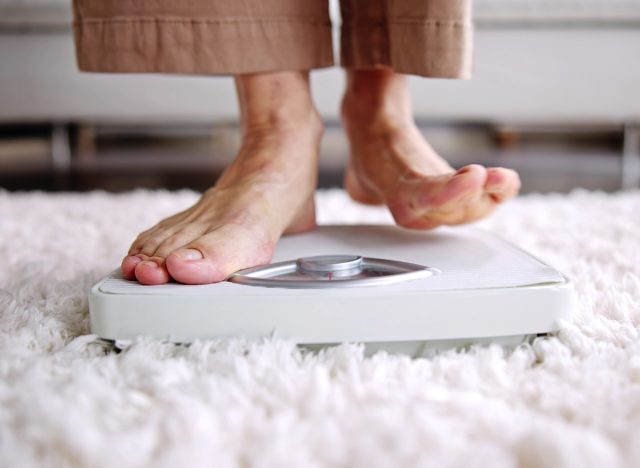
Dr. Fujioka says people who weigh themselves every day are more likely to lose weight and keep it off than people who don't. "Our philosophy here is that no one size fits all," dietitian, nutritionist and wellness coach Meridan Zerner tells the American Heart Association. "The majority of research would say weigh daily. But if there's any negative fallout from weighing every day in terms of outlook, self-esteem or your positive momentum, I would say we can check in once or twice a week."
Get Enough Sleep

Dr. Fujioka stresses how important sleep is for weight loss and overall health, something echoed by many other medical professionals. "It's also important to note that getting 7-8 hours of good, quality sleep each night can help reduce weight," says Babak Moini, MD, internal medicine specialist at University Hospitals. "Too little sleep, coupled with stress, causes the body to release cortisol – a potent steroid that raises your blood pressure and blood sugar and causes weight gain."
Eat Whole Foods
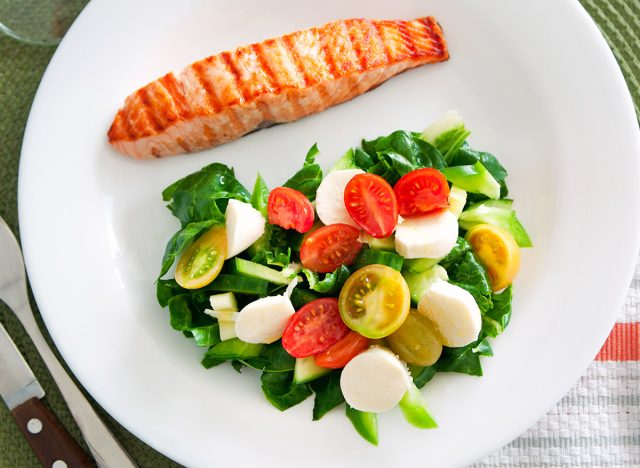
Dr. Fujioka recommends eating foods in their whole form rather than juicing or taking a pill. "Whole plant foods contain the extracts in addition to other vital nutrients that are lost with juicing," according to Kendall Reagan Nutrition Center. "Plant foods contain different varieties of phytonutrients and antioxidants that protect our bodies against inflammation and disease. For these reasons, it is recommended to include a variety of whole plant foods in meals and snacks to expose your body to a wide spectrum of health-promoting nutrients."
Avoid Processed Foods
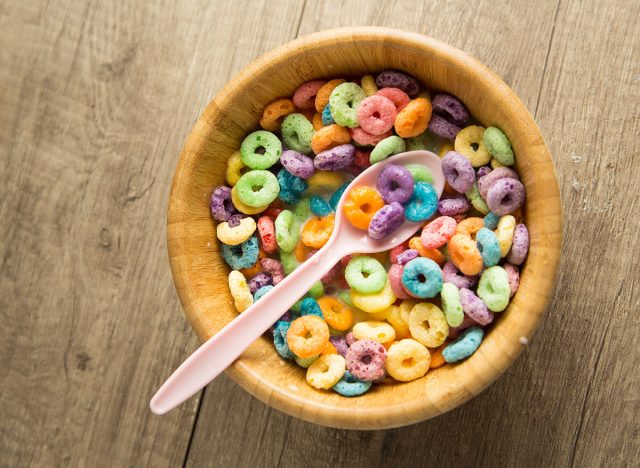
Avoid ultra-processed foods, Dr. Fujioka stresses. "According to research, a high intake of processed and fast foods has been linked to overeating," Rebecca Crumb-Johnson, MA, RD, CDCES, tells Northlakes Community Clinic. "Whole food doesn't contain the sugars. salt and flavorings added to processed foods which can lead to eating more food than is needed."
Eat Your Vegetables

Dr. Fujioka recommends eating a variety of vegetables. "Almost all vegetables really are quite good," he says. "Beans, peas, corn. They're fine! But also jicama, celery, tomatoes. All that stuff is good to eat."
Eat Lean Proteins

Dr. Fujioka emphasizes the importance of lean proteins for weight loss and health. "Protein is the building block for your organs, bones, muscles and hair," family medicine physician Dr. Sharon Browning tells Atrium Health. "When you have a strong foundation with protein, you have a healthy foundation for your body and life." And if you enjoyed this article, take advantage of these 15 Quick Ways to Lose Body Fat Percentage in a Week.
